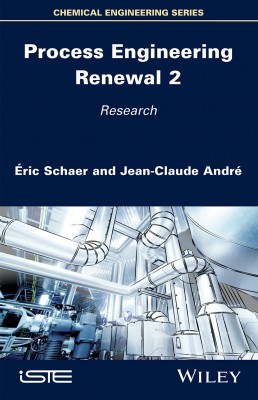
Process engineering emerged at the beginning of the 20th Century and has become an essential scientific discipline for the matter and energy processing industries. Its success is incontrovertible, with the exponential increase in techniques and innovations.
Rapid advances in new technologies such as artificial intelligence, as well as current societal needs – sustainable development, climate change, renewable energy, the environment – are developments that must be taken into account in industrial renewal.
Process Engineering Renewal 2 focuses on research in process engineering, which is partly overshadowed by the sciences that contribute to its development. The external constraints of this interface science must be seen in relation to conservation, sustainable development, global warming, etc., which are linked to current success and the difficulty of taking risks in research.
1. From “Autonomous” Research to Societal Solutions.
2. Highly “Autonomous” Research.
3. Externally Stimulated Research.
4. Research in Response to Societal Questions.
5. Non-Exhaustive List of Possible Actions in Process Engineering.
6. Consequences and Attempting to Reach an Operative Conclusion.
Éric Schaer is an engineer at ENSIC (French National School of Chemical Industries) and Professor at the University of Lorraine, France. His research extends to the implementation of homogeneous and heterogeneous chemical reactions.
Jean-Claude André is Research Director at CNRS (French National Center for Scientific Research), researcher at the University of Lorraine, France and an ENSIC engineer. He focuses his research on light-matter interactions and associated process engineering.